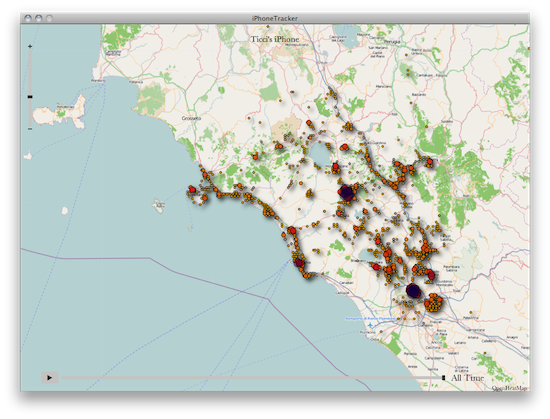At a U.S. Senate hearing this morning entitled “Protecting Mobile Privacy: Your Smartphones, Tablets, Cell Phones and Your Privacy”, Apple’s Vice President of Software Technology Guy L. “Bud” Tribble offered his remarks about Apple’s privacy policy, location tracking system implemented in iOS devices and App Store app control, reiterating many of the points already explained by Apple two weeks ago in the Q&A on Location Data.
As summarized by AppleInsider, Tribble testified before Senate members that Apple doesn’t collect personal information about its users nor does the company share any information with advertisers – rather, the cache file that was discovered by security researchers (which was incorrectly large in size and backed up to a computer during the sync process) is meant to store information about nearby cell towers and WiFi hotspots to enable iPhones and iPads 3G to quickly get signal without having to rely on real-time GPS data all the time. This is a crowd-sourced database that Apple keeps in a small amount on every device as an offline cache – personal data and device identifiers are never sent to Apple, Tribble explained.
Sen. Al Franken also asked both Apple and Google representatives at the hearing whether the two companies could add a fixed privacy policy to their app marketplaces to ensure users always know how their personal data is being treated, and what’s going on behind the scenes of an app. Tribble replied a privacy policy in App Store apps wouldn’t be enough as users are likely to skip that every single time – and that’s why Apple believed that adding actual graphical elements to the user interface would be a better, and more elegant solution to inform users about the usage of Location Services. In iOS, an icon in the status bar indicates when an app is sharing your location; every app must ask a user to share his location through a dialog box; in the Settings, users can revoke location access on app-by-app basis and manage other location preferences as well.
Tribble also went on to explain Apple does random audits on App Store apps and follows the tech press and iOS community to find out which apps are violating the privacy rules:
The Apple executive also detailed how his company conducts random audits on applications to make sure they’re playing by the rules. He admitted that Apple does not audit every single one of its 350,000 iPhone applications, just like it would be impossible for the federal government to audit every single taxpayer. Apple also keeps an eye on blogs and its “active community” of application users for potential violations. If a violation is discovered and the issue cannot be resolved, applications will be removed within 24 hours and the developer will be notified.
In most cases, Tribble said, developers quickly correct the issue, as they want to keep their application available in the App Store.
Tribble was joined today by Google’s Alan Davidson. A video of Senator Franken’s opening statement is embedded after the break.


